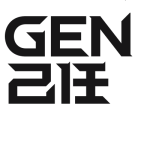Ever since China announced its commitment to set up its patent linkage system in 2018, this very topic has been a focal point for the global pharmaceutical industry.
Despite some uncertainty about the prospect of China’s patent linkage system due to personnel changes, the US–China Phase One Trade Agreement somehow removed the uncertainty, although the system was switched to the ‘drug patent early stage dispute resolution mechanism’ in the amended Patent Law at the end of 2020.
It eventually took about another six months before China finally released the implementation rules with some slight delays, a month after June 1, the effective date of the newly amended Patent Law.
Starting from July 4 2021, the National Medical Products Administration (NMPA), the China National Intellectual Property Administration (CNIPA) and the Supreme People’s Court released the final version of their patent linkage rules – the ‘Measures for the Implementation of the Early Resolution Mechanism of Drug Patent Disputes (Provisional), Judicial Interpretation on Patent Linkage and Administrative Adjudication Rules’. All these rules, together with the amended Patent Law, become the legal framework of China’s patent linkage system.
A review of these three sets of rules reveals three key features of China’s patent linkage system.
Declaratory action
First, as the amended patent law rejects the artificial infringement doctrine, China ends up using a ‘declaratory action’ type claim to allow innovators and generics to go to courts/CNIPA to confirm whether the generics falls within the scope of innovator’s patents registered with China’s Orange Book. China’s Supreme Court came up a special cause of action ‘Article 76 lawsuit’ to designate such action, and has found a way to say that the determination could be used as a basis of finding of infringement in any future litigations unless otherwise new evidence proves to the contrary.
One issue originators might find concerning is the indemnification provisions that China imposes to deter potential abusive litigations. The Supreme Court states that if the patentee or interested party knows or should know that the patent right claimed by him should be declared invalid, or the relevant technical solution of the drug applied for registration does not fall within the scope of patent protection, and still brings a patent linkage lawsuit or adjudication, the generics may file a lawsuit for damages.
Generics
Second, China eventually went for a nine-month stay period and a 12-month market exclusivity incentive for successful challenging generics, all for compound patents for now (to the disappointment of biologics and traditional Chinese medicine). While such design may appear more favourable to generics, the genuine concern may be more about what kind of certainty both sides can really benefit from before the generics are going to market. Even if generics won either Article 76 action or even the invalidation action in the first instance, originators can still appeal. Generics would have to wait until the end of all the procedures, which may still take two-three years.
One trend that may be continuing is the importance of invalidation actions. China links the ‘reward’ of market exclusivity for generics to outcome of invalidation and filing of Paragraph IV declaration. Generics have to be both the earliest to file and winner of the invalidation cases.
Parallel track for innovators and generics
Third, China designs a parallel track for innovators and generics to fight on patent linkage actions, although it is clear the CNIPA has taken a humbler approach to let the courts take the lead. Beijing IP Court is now designated as the court of first instance and we expect the court to get ready to try upcoming stream of cases soon.
CNIPA issues a relatively brief set of procedural rules and announced it will start a new board to review all the administrative patent linkage cases. CNIPA’s decisions will be subject to judicial review and are supposed to be made public. Such transparency could relieve the concerns of the industry and legal community about any potential inconsistency of adjudication standards between the courts and CNIPA.
At present companies’ priority should be how to register their patents with NMPA’s listed drug book (Orange Book). After all, the current rules have set out general liability for misleading or fraudulent filings of these patent information. And it is still questionable whether and when NMPA/CNIPA will issue more and clearer guidelines or rules to clarify certain ambiguities. Such groundwork has to be done first before parties start to try the system.
He Jing
Patent attorney, GEN Law Firm
Gu Xiaoman
Patent attorney, GEN Law Firm













